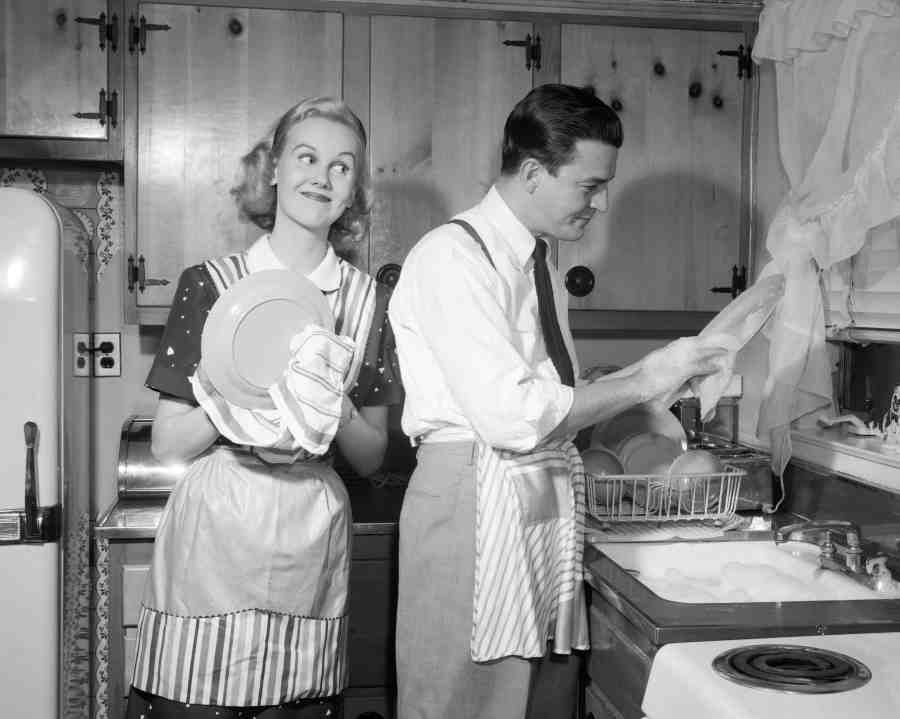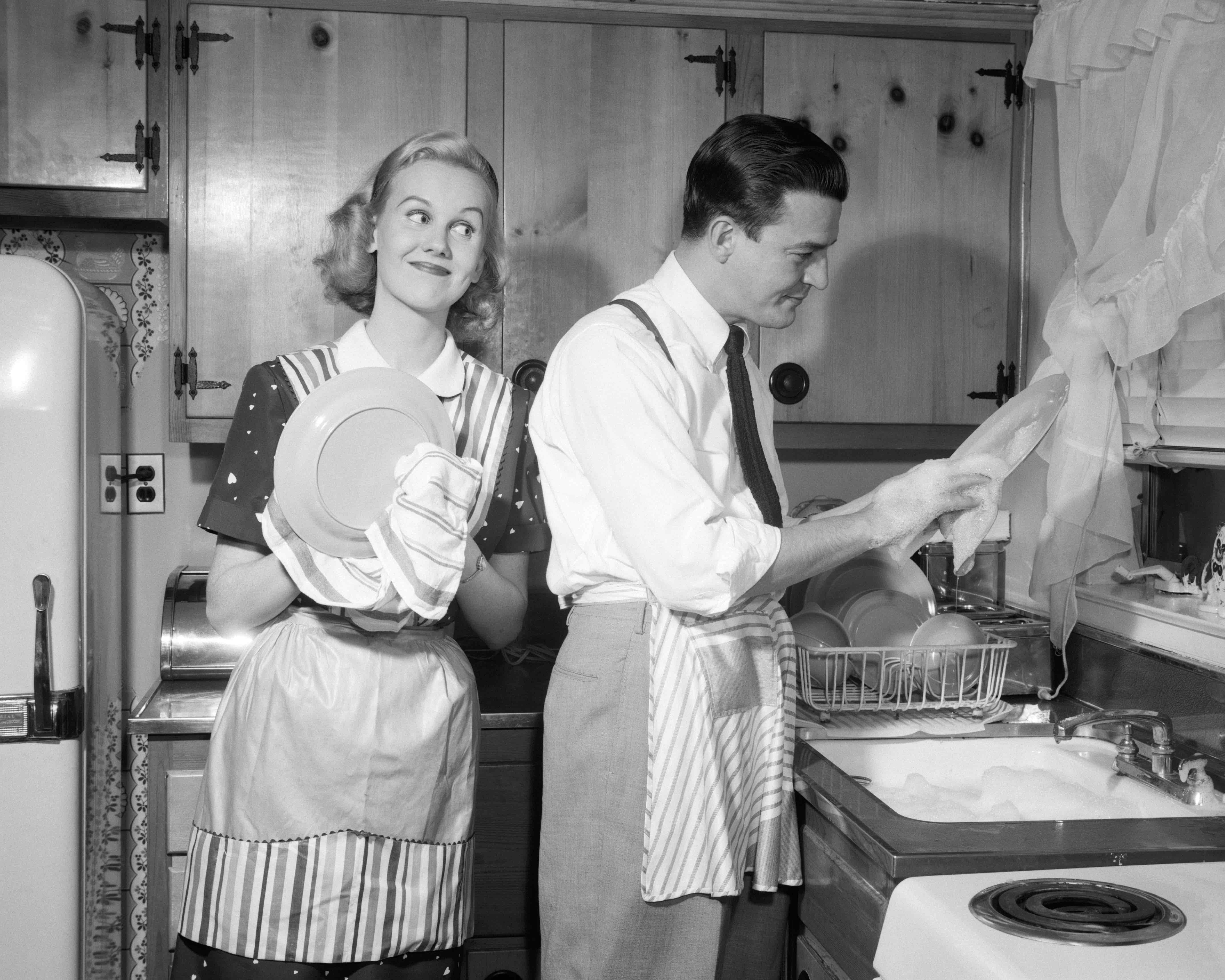Don’t women have a bum deal? Not only do we have to bear children and make our way on the harsh plains where second-wave feminism and rampant neoliberal professionalism meet, but apparently now we must also perform ‘emotional labour’ for our husbands. Sorry: husbands and partners. This emotional labour has been christened ‘mankeeping’, the latest feminist buzzword. Dreamed up by Angelica Puzio Ferrara, a psychologist at Stanford, it describes the heavy lifting that women in heterosexual relationships do to keep ‘the family harmony alive’.
And it appears to have struck a chord. ‘Mankeeping: finally, a word to describe the emotional labour of my 38-year marriage,’ declared a recent Telegraph headline. ‘Mankeeping – are you your husband’s BFF, therapist and PA? That’s a whole lot of emotional labour women could do without,’ agreed the Times. It’s become such a fashionable term that even Vogue has got involved, running a piece this week titled: ‘What is “mankeeping”, and how do I know if I’m doing it?’
Having listened to Ferrara’s definition on the Now and Men podcast, I can confirm that mankeeping involves everything from being a therapist, confidante and social secretary to an all-round emotional factotum for your husband. It has come about, she explains, because of the ‘male friendship recession’ caused by late-stage capitalism and the discontents of ‘patriarchal masculinity’. In short, men no longer have any chums to disappear down the boozer with and have a soothing chat about cars and their wives’ spending. Consequently, heterosexual women are at risk from ‘a mental load imbalance’.
Really? As a married woman, I wish to object. Yes, my husband confides in me; yes, I am the social secretary in our marriage (and much else besides) – but are these grounds for complaint? I hardly think so. Aren’t wives meant to listen to their husbands’ thoughts and feelings? What did you think you were signing up for, ladies? An arrangement in which you both outsourced your happiness to other ‘networks’, only meeting occasionally for a game of padel and an heirloom tomato with a few WhatsApp love hearts thrown in?
Some of us – and not just the arcadians among us – quite enjoy mankeeping. But I shouldn’t be surprised that Ferrara’s viewpoint has got so much traction since it is entirely in line with any modern characterisation of feminine roles as grounds for oppression. Not unlike the work of motherhood, now cast almost exclusively as torture for those of us who have been let down by the lies of feminism, wifehood is also a burden and grounds for victimisation.
Aren’t wives meant to listen to their husbands’ thoughts and feelings? What did you think you were signing up for, ladies?
But I don’t feel like a victim. My husband has many friends of all different stripes: some he goes shooting with, some he goes drinking with, some he sees in London when he is there for work. These are not the stunted ‘toxic’ spaces of white, heterosexual masculinity you may read about: they seem perfectly efficient to me. I encourage the deepening of these social networks when I am not there, but I know that what he really likes is a good natter in the kitchen of an evening behind the veil of bourgeois marriage.
On a practical level, mankeeping also just seems to be more efficient. I have lost count of the times that messages are forwarded to me regarding our shared diary, usually along the lines of: ‘I was told that you are the boss so what dates work best for lunch?’ Yes, I am the boss and I keep a tight ship: if our mutual friends start asking my husband when we might be free, chaos usually ensues.
The key to a successful marriage, it seems, is knowing who does what; this isn’t oppression but rather pragmatism. A quick straw poll of my Boomer friends confirms that it has been ever thus. ‘Oh, he never had any friends,’ one wife, now in her late sixties, tells me. ‘I did all of that and it worked rather well.’ So much for the male loneliness epidemic, frequently presented as a new and toxic phenomenon; married men have always relied on their wives for the pizzazz of social crackle and support after a long day in the office, the only difference being that these wifely qualities used to be honoured rather than moaned about. As is often the case, I wonder how my experience of womanhood can be so very different from those feminists who have loudly documented their transformation from dupes of the patriarchy to willing participants in its bin fire.
Perhaps, just perhaps, we can start to value these qualities more without freighting them with the negative lexicon of modern feminism. Want me to invite the Selby-Gores to lunch? Love to. Want to talk to me about that bastard in your office who talked over you at the board meeting? Yes please, and don’t leave anything out. Want to talk about the time your father hit you over the head with a broom? I’ve got time. And on this last one, I’ve got plenty of comparable examples which I could do with discussing myself. We might even enjoy it. I know I will.








Comments